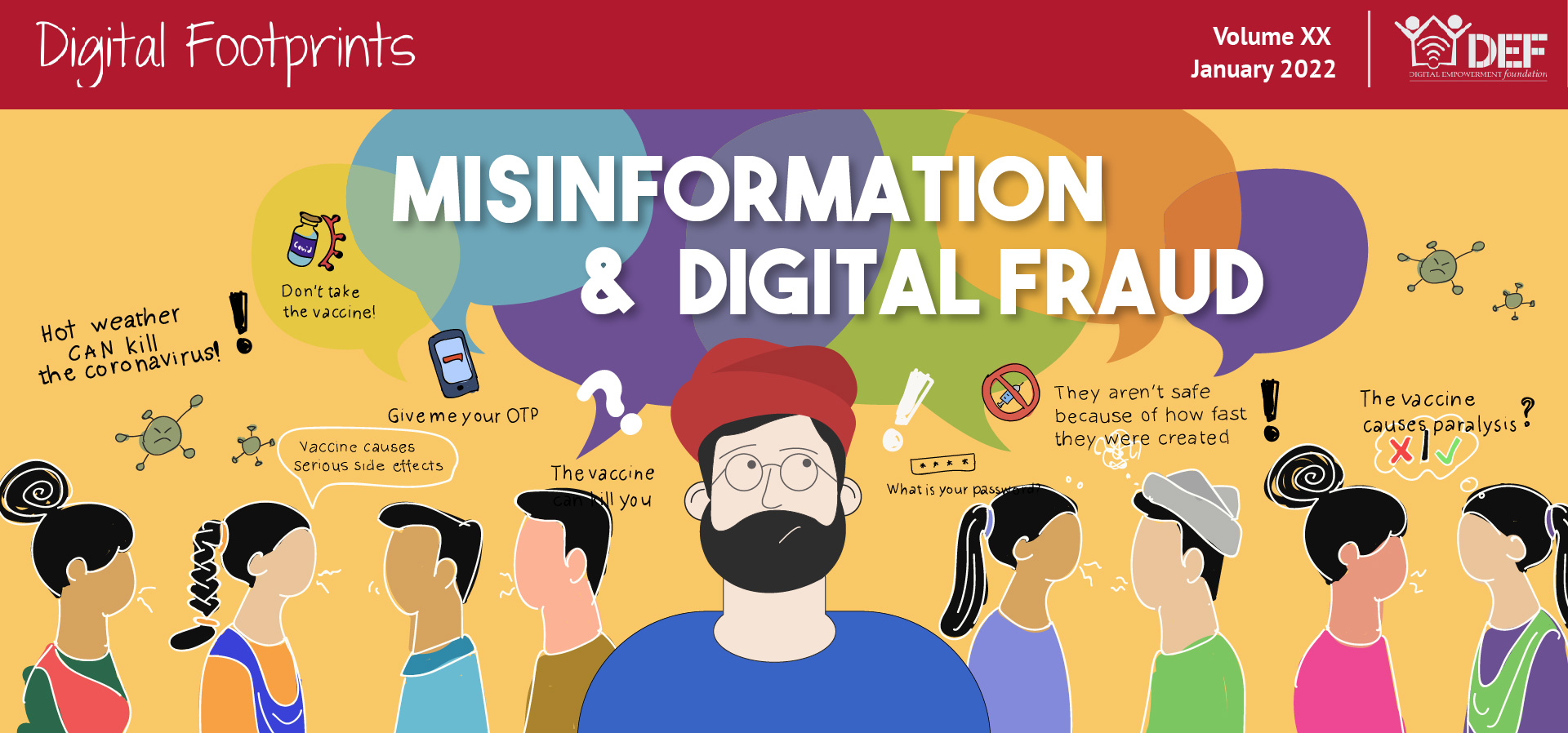

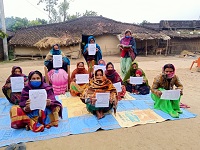
Fake news, misinformation and fraud are the biggest challenges of the digital world. With the pandemic everyone has been forced to learn digital tools, however, not everyone has received the training to use digital devices and the internet in a safe manner. This can on some occasions prove to be more dangerous than being unconnected altogether. Identifying and verifying fake news and misinformation is a big ask from someone who hasn’t received training in the field. Read More



It was 2003 and Geneva was hosting the first global summit on using digital infrastructure for serving the development needs of communities. I was in the India Pavilion when Arun Shourie walked in — lean, alert and full of probing questions in an almost journalistic manner. Shourie wanted to know from me what was the future of information and communication technology, or ICT, in India. How could grassroots organizations in the voluntary sector help create an internet ecosystem in the country, he asked. As we talked, we agreed that for the use of the internet to be meaningful there would have to be a collaborative effort between the government and voluntary organizations. As in other spheres of development, one couldn’t possibly do without the other. Read More



Shivani Ojha is a woman entrepreneur from Myana village in Guna. She runs a tailoring shop. After getting trained in digital tools she learned to use the different features of her smartphone. She used digital tools to advertise and further expand her business. Her revenue earlier was 3,000 rupees per month but after implementing her learnings from the training it has jumped to 5,000 rupees per month. She said “through the digital training I not only learned digital skills but also became an informed citizen.” She attended training sessions on misinformation and identification of fake news. She shared that earlier she would forward messages on WhatsApp without verifying the authenticity of it but now she understands the importance of verifying information.
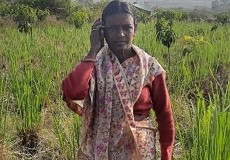
Basanti Khalkhi is a woman entrepreneur from Khunti, Jharkhand. She stays with her husband and three children. She does lemongrass cultivation and has been earning enough money from it for herself and her family members. There is a high demand for lemongrass in the market as it has multiple uses; it is used for body and head massage as well as for joint pains. ‘Plash Mart’ is a store in Khunti that gives her regular orders and she delivers to them. Joining the digital training program initiated by Digital Empowerment Foundation helped Basanti digitise her business and streamline it. Read More
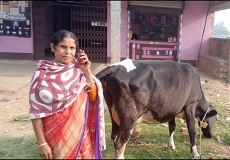
Sampa Chakrawati from Chokad village in Jharkhand lost her husband at a very young age and had to take the responsibility of raising her three small children. She started a dairy business to earn money and send her children to school. She started the business with one cow and slowly with the support of some government schemes she was able to expand her business. Apart from a few regular individual customers her major buyers are hotels. Along with the milk business she is also running a parallel business of paneer and ghee for extra income. She makes the paneer and ghee herself at home. Now that her children have grown up they are also helping in her business. Read More


Digital Literacy Classroom program intends to provide digital literacy to the rural communities and the students of Government Sr. Secondary School at Bawal, Haryana. The program aims at providing support to government schools to establish computer labs or digitally enabled classrooms to facilitate sustainable digital literacy. Nowadays, where most of the students rely on the internet as a primary source of information, it is important to teach them the basic digital skillset to ensure that they have a quality and wholesome education which gives them exposure and opportunities and prepares them for the future. Read More


Noorbi Pati Rehmat is from Untwal village in Alwar in Rajasthan. Her husband passed away 5 years ago and since then she has been receiving the widow pension. She goes to the local e-mitra (digital kiosk service point of access) outlet in her village to withdraw the money through her Aadhar card. She doesn’t know how to read and write so her son would check her bank statements from time to time. Once when he was visiting her he checked the bank statements and asked her how much money she had withdrawn; the statements showed much more than what she had actually withdrawn. As it turns out, the e-mitra agent had made her put her fingerprint but said that the payment had failed so he asked her to go and behind her back he had withdrawn money. Read More
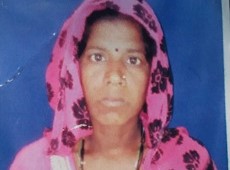
Surjit Kaur from village Kheri located in Alwar district in Rajasthan was cheated by an agent. The agent withdrew 2000 rupees from her account with the excuse of checking her account. She said that she was told that the government has closed her bank account so she needs to open a new one. A few days later she came to Irfan Khan, the local Soochnapreneur (Information Entrepreneur) and asked him why the government had closed her bank account; she was extremely worried. Irfan checked her account status and it showed active; however Irfan saw the withdrawal of Rs 2000 from her account and asked her about it. Read More

Sariyam Taufeeq, from Untwal village in the Alwar district of Rajasthan had only studied up till class 5. Her husband is a driver and he sends her money through her bank account. Her Aadhar card is linked with her bank account and mobile number, so she uses her mobile number to withdraw money. As soon as she makes a withdrawal her husband gets notified through his mobile. Once she withdrew 2,000 rupees and came back home when her husband called to tell her that he got a message that she withdrew 3,000. Her husband told her to go back to the shop and ask him to give back the 1,000 rupees. So she went there and told him to return it. Read More
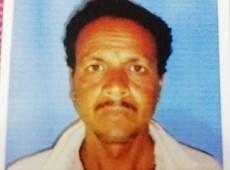
Kalyan Singh, a farmer has spent his life in poverty, the Covid-19 pandemic and lockdowns have made things more difficult for him. With no stable source of income, an elderly person like him was unable to afford even two meals every day. He applied for the PM Kisan Samman Nidhi Yojana, an initiative of the central government but he was unable to receive the benefits. He spent a whole year trying to get the benefits and even spent a lot of money on travelling to government offices. Kalyan Singh then approached DEF’s SoochnaPreneur in Jharkhand, Shiv Kumari. Shiv Kumari did an investigation by approaching Kalyan’s bank and found out that the benefits were going to another man and his name was also Kalyan Singh. He had been getting the benefits that Kalyan was entitled to. Read More

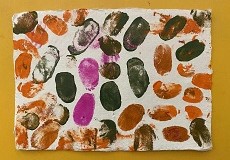
As one after the other, controversial bills bulldozed through the winter session of 2021 parliament despite opposition protests, civil rights, privacy and inclusion keeps taking a blow. The latest in the list is the Election Laws (Amendment) Bill, 2021 which cleared the Lok Sabha on the 20th of December 2021 and the Rajya Sabha the very next day. The most contentious phrase in the amendment is the provision it gives for linking the electoral roll data with Aadhaar. Incidentally, while the bill was passed only last week, this is not the first experimental run with such an idea. Read More
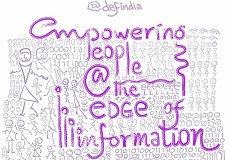
A Joint Parliamentary Committee has finalised and finally tabled the Data Protection Bill from 2019 in the winter session of the parliament this year. The bill clearly has gone through several changes in the two years but has still has not really addressed the original criticisms that were raised. As the year comes to an end and the bill gets ready to be passed, this seems to be a good time to get a primer on what exactly personal data is, why it needs to be secure, and how the government right now is merely trying to harvest, surveil, and even help sell it. Read More
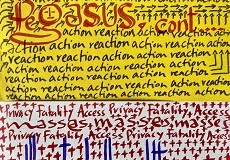
In July this year, a large investigative project collaborated by journalists, agencies and researchers worldwide exposed how an Israeli company’s spyware was being used by governments to target and snoop on journalists, activists, politicians, and members of the judiciary. The initial list outed by The Wire had at least 300 such phones that were under surveillance. Created by the NSO group, and named ‘Pegasus’, the proprietary spyware is “is capable of remote zero-click surveillance of smartphones,” requires the Israeli government’s permission to be sold to its customers who can also only be governments. This also means the software is as good as an arms deal from the government. Read More
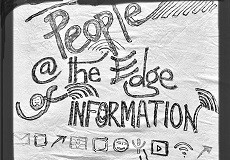
Near the end of November this year, the Niti Aayog released a report calculating the nation’s ‘multidimensional poverty index (MPI),’ and in the process, they expanded and redefined the term poverty beyond the usual monetary indicators. The NITI Aayog is the country’s primary policy think tank, an institution that had replaced and taken over the responsibilities of the decades-old Planning Commission of India. This index had been developed by the UNDP and the OPHI in 2010, but has since undergone some changes. Read More

With over half of India’s population unconnected to the Internet, the country is divided into haves and have nots. People who have access tend to be well educated and have higher income, while people who lack it tend to belong to marginalized groups, such as indigenous and tribal communities, women and girls, and those living in hard-to-reach locations. With the Internet a source of educational and economic opportunity, this lack of access can exacerbate socioeconomic inequalities. However, with increasing interconnectedness, local solutions can rapidly scale and bring about global impacts. Read More




This month we have produced the following four videos. Two of them are about Samarth SoochnaPreneurs who are Differently-Abled Entrepreneurs who have taken the responsibility to digitally empower the community and provide government entitlements to everyone in their respective villages. The third video is about the Risk Communication & Community Engagement program which aims to fight vaccine hesitancy and spread awareness about COVID appropriate behaviour and the importance of taking the vaccine. The fourth video is about the SoochnaPreneur program under which women are being trained to become digital entrepreneurs.

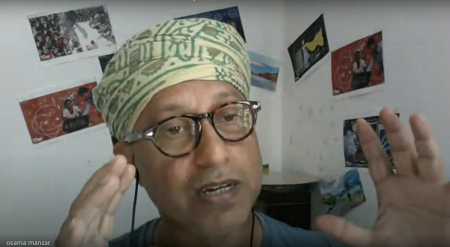

The COVID-19 pandemic led to the nationwide lockdown in March 2020. The millions of migrants living in cities lost their source of livelihood and head back to their villages. Deepak Kumar Munda, 21 was one such migrant worker. He used to work in Bangalore as a labourer and returned to his village Khakhra in Jharkhand as the 2020 lockdown left him unemployed. He migrated in 2020 because he couldn’t find a stable source of income in the village. He had to leave his studies after class 10 because his family couldn’t afford sending him to school anymore; they needed him to earn money. He has two younger sisters who are studying in a government school. His father is a labourer and his mother a housewife. His father’s income is not enough to run the house. Here is his full interview and video from when the DEF team met him in June 2020 after he came back to his village from Bangalore. Speaking with Deepak it was obvious that he had a lot of potential and he was immediately identified as a candidate for any upcoming projects. Read More
With the onset of the third wave we are crowdfunding digital devices so that underprivileged students are not deprived of education like they were during the first two waves of the pandemic.
info@defindia.org | def@defindia.net



